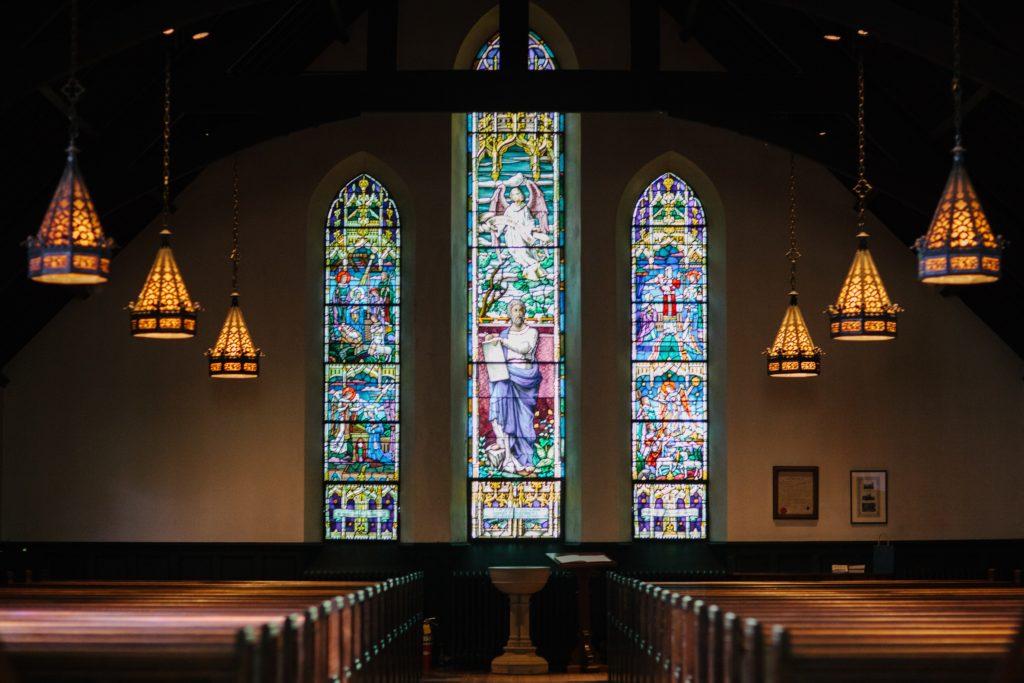Problem with the Human Paradigm


This is part of The False Promise of Discipleship blog series from The Bonhoeffer Project. Read the blog that came right before this one by clicking here.
When I (Bill) was nine years old, I went to the altar at my grandmother’s church. A gaggle of praying folks surrounded me and informed me that I had “prayed through,” which meant that I had been saved from my sins and was heaven bound. Later that week, my grandmother informed me that I would need to be faithful and sometime in the next year or so I would need to be sanctified. She said that was the next step. It was my X.
A week later, I was laughing at my friends’ off-color stories and thinking way too much about girls. I was moving in reverse. I never made it to X. Actually, X didn’t look that good to me, but I knew I should try to get there, like it or not.
The big question, of course, is how do we get to X?
Most church teaching offers up the answers in the form of a list of do’s and don’ts, all designed to get us “close to Jesus.” You just climb the rungs. If you do these things, you’ll get to X. Most church activity is based on that assumption. Do the things your church or denomination or tradition says you should do—go to church enough, read your Bible enough, get enough information in your head, pray enough, have enough faith, have enough quiet times, tithe enough, don’t use those words, don’t watch those movies—and you’ll get to X.
Bill Hull and Brandon Cook, authors of this blog and eBook, will be teaching at this year’s Forum. Meet them and get more content like this in person at the 2017 National Disciple Making Forum.
This is one of the largest gatherings of disciple makers in North America with 65+ workshops, 15+ speakers, and 10+ tracks. Join us to learn practical ways to make disciples of Jesus this November 9-10 (Thursday-Friday). Register for the 2017 National Disciple Making Forum here.
The promise that’s so often taught even if it’s never explicitly stated is that “if you engage in certain religious practices in the right context—like through church membership or participation—you will become a mature Christian.” Obviously, the rungs vary according to context. In some legalistic contexts, a rung might be, “Don’t cut your hair or wear shorts.” In some holiness contexts, a rung might be, “Don’t drink any alcohol.” In a hipster context, it’s all about the black frame glasses (we should know since we both wear them). Whatever the case, we generally have a clear list of “shoulds” presented to us—things that we’re supposed to do that will get us to X.
Memories
I (Brandon) have a very clear memory from high school of lying on my bedroom floor with a yellow legal pad, onto which I frantically scribbled all the things I could identify about myself that needed to be fixed. A spiritual inventory of sorts. And there were a lot of things to write down. I was hyper aware of all that I judged as unacceptable—to myself and, no doubt, to God. Stop wanting so many material things. Stop being jealous. Make more time for prayer and Bible study. Do this, don’t do that. The list went on and on, and after I’d gotten a page full of items, I sat in frustration, literally rapping my fists on the floor at just how overwhelming it all was. But I couldn’t see any other way. I felt incapable of transforming myself, and yet the only possibility I saw was trying harder. The only economy I knew was one based on me doing well enough to earn rewards, in this case, from God Himself.
That’s a stark example, and almost cartoonish, but I would assert that most of us, deep inside, have some sort of remnant belief that this is exactly how the universe works, and that God’s favor must be earned, not for entry into heaven, but for life. And the reason we practice spiritual disciplines is to climb the rungs of the ladder and get to X. That is what The Human Paradigm is all about.
The Human Paradigm
You can probably tell we’re about to tear apart The Human Paradigm, but first it bears repeating that a lot of this paradigm is true and helpful. This is the way the world functions, and when Jesus said, “be wise as serpents,” there’s something to be said about understanding how the world works. Moreover, most of the “must do’s” listed above—reading the Bible, praying and living generously and so forth—are great things! And we do pursue them and seek out some sort of spiritual growth and transformation. All of that is true.
That being said, The Human Paradigm has some real problems. And many of us are stuck in life because we buy into this paradigm, which results in a lot of confusion, frustration and, ultimately, anger toward God. We get stuck there because while we understand how things work in the world, we don’t understand how they work within God’s Kingdom, in which a totally different paradigm—an economy that is not based on earning—is the only economy that matters. So we need to understand the problems with The Human Paradigm because without that understanding it will be difficult for us to fully enter the Kingdom of God or to thrive as disciples of Jesus.
*Stay tuned by coming back to our blog for the next blog in this series, which will be coming soon!
This is an excerpt from the free eBook written Bill Hull and Brandon Cook of The Bonhoeffer Project. You can download the full eBook on their homepage here.
Bill Hull is a Co-Founder of The Bonhoeffer Project. Bill’s passion is to help the church return to its disciple making roots and he considers himself a discipleship evangelist. This God-given desire has manifested itself in 20 of pastoring and the authorship of many books. Two of his more important books, Jesus Christ Disciple Maker, and The Disciple Making Pastor, have both celebrated 20 years in print. Add his third in the popular trilogy, The Disciple Making Church, and you have a new paradigm for disciple making.
Brandon Cook is the lead pastor at Long Beach Christian Fellowship and a co-founder of The Bonhoeffer Project. Originally from Birmingham, Alabama, he studied at Wheaton College (IL), Jerusalem University College, Brandeis University, and The Oxford Centre for Hebrew and Jewish Studies. He worked as a professional storyteller before joining a transformational training organization and moving to SoCal in 2006, becoming a pastor three years later. Over the course of five years of pastoring, he became convinced that his work—and the work of the church—is to become fully committed to discipleship and making disciple-makers. The Bonhoeffer Project is for him a quest to live into the question “How are people transformed to live and love like Jesus?”
If you have enjoyed reading this, please consider joining our email list!










